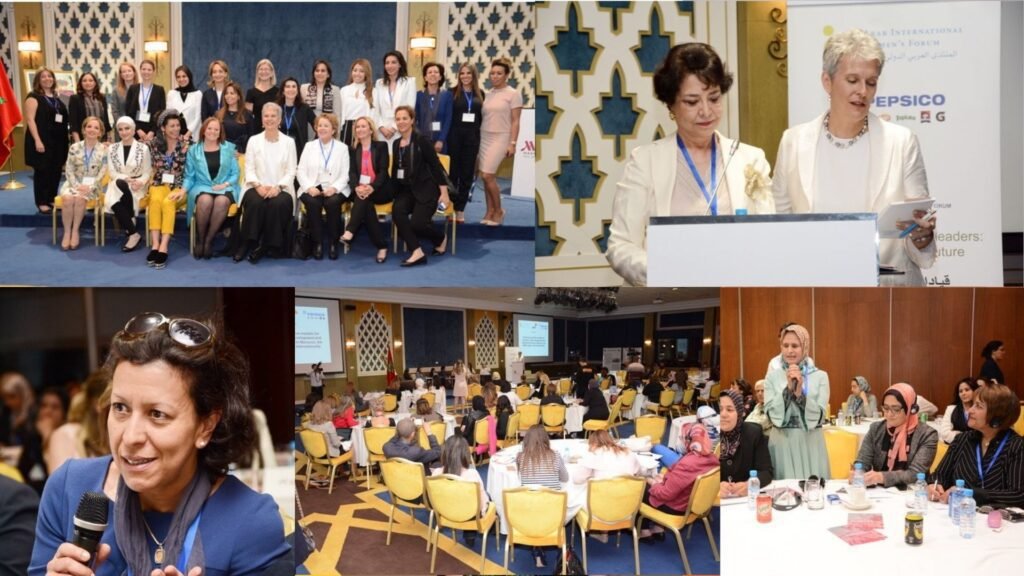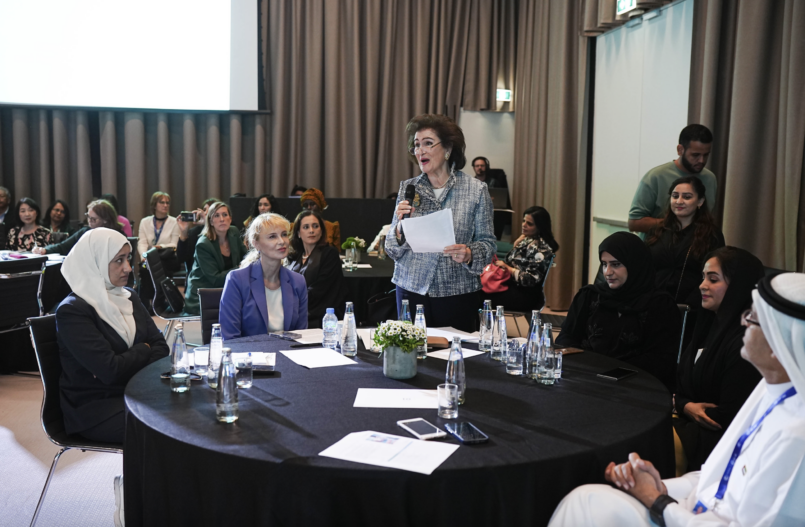The UAE once again took center stage for regional progress as it hosted the much-anticipated Arab Women Leaders Conference in Abu Dhabi this week. Bringing together prominent female voices from across the Arab world, the conference focused on empowering women in leadership, championing gender equality, and discussing the future of female-driven innovation across sectors.
Held in the heart of the capital, the event saw participation from ministers, CEOs, social activists, entrepreneurs, and young leaders. This was more than just a conference—it was a celebration of ambition, resilience, and the growing role of women in shaping the region’s future.
Setting the tone for regional transformation
The Arab Women Leaders Conference arrived at a pivotal moment in the region’s development journey. As countries across the Middle East push for economic diversification, social reforms, and digital transformation, the inclusion of women in leadership roles is no longer just a goal—it’s a necessity.

The UAE, long known for its progressive approach to gender equality, continues to lead the way. This event added another milestone to the nation’s growing portfolio of initiatives designed to empower women across all fields—from government to private enterprise, science, arts, and education.
Speakers emphasized how women’s participation can no longer be considered optional or symbolic. Real change is happening, and the region is beginning to reflect it.

Inspiring stories from women who lead
One of the most powerful aspects of the conference was the series of personal stories shared by women leaders who overcame societal, cultural, or professional challenges to rise to influential positions.
From startup founders who broke stereotypes to diplomats steering global discussions, their journeys served as real-life case studies of how change starts with courage and conviction. Each story resonated with younger attendees, showing them that success is not just possible—it’s expected.
It wasn’t just about titles or positions. The women on stage spoke of passion, purpose, and the responsibility they carry in lifting others up as they rise. These moments brought emotion, clarity, and connection to the audience—something that statistics alone can’t offer.
Key themes that dominated the conference

Several key themes emerged throughout the sessions, panels, and workshops. One of the strongest was the role of education and mentorship in empowering future women leaders. Many participants agreed that equipping girls from a young age with the right tools, skills, and confidence is fundamental to creating lasting change.
Another major theme was the importance of having women in boardrooms and policymaking positions. Panelists urged governments and private companies to adopt measurable diversity targets and to provide environments where women don’t just participate—they thrive.
Digital innovation also took center stage, especially with the rise of female tech entrepreneurs in the Arab world. With AI, Web3, and fintech creating new economies, there was a clear push for ensuring women are not left behind in the tech race.
Engaging the next generation
The conference wasn’t limited to established names—it also focused on the next generation of Arab women leaders. A dedicated youth forum ran alongside the main event, where young women pitched projects, exchanged ideas, and took part in mentorship sessions with regional leaders.
Workshops on communication, leadership mindset, and innovation skills gave attendees practical tools to kick-start or elevate their careers. The energy in these sessions was undeniable, highlighting how future-ready this generation is, and how vital it is to give them platforms to shine.
This investment in youth reflects a long-term vision. It’s not just about empowering the present; it’s about preparing the future.
Public and private sectors working hand in hand
One of the highlights of the conference was the strong presence and collaboration between government bodies and the private sector. Both were aligned on the importance of creating real opportunities for women—not just for visibility, but for impact.
Leaders from tech giants, banking institutions, and energy firms joined forces with ministers and policymakers to launch new initiatives aimed at hiring, training, and promoting women in leadership roles. Several MOUs were signed on the spot, promising long-term collaboration.
This kind of public-private partnership is crucial. It signals to the world that the region is not just talking about change—it’s making it happen.
Cultural evolution with purpose

The Arab Women Leaders Conference also addressed cultural perceptions. Speakers shared how tradition and modernity don’t need to be at odds. Rather, cultural values can serve as the foundation for women’s empowerment.
With thoughtful dialogue, the event explored how Arab societies can remain rooted in their identity while still embracing progress. This approach resonated deeply with many attendees, who feel that true empowerment lies in choice—not in fitting a specific mold.
In many ways, the conference became a space for redefining what leadership looks like for Arab women in the 21st century. It’s no longer about imitation; it’s about innovation.
Global recognition and regional pride
International guests at the conference praised the UAE’s commitment to leading this conversation on such a grand scale. From logistical execution to the quality of content, the event positioned Abu Dhabi as a thought leader in gender equality and inclusion.
But more importantly, it gave Arab women a space to speak with pride, to challenge norms, and to show the world what they’re capable of. This visibility is powerful. It encourages others to act, to speak, and to lead.
What’s next? Continuing the momentum
As the conference drew to a close, one message was clear: this is not the end. It’s a new beginning.
Organizers announced plans for follow-up programs, including leadership boot camps, policy think tanks, and regional networking hubs. The conference was just the spark—the real work begins now, in boardrooms, classrooms, labs, and parliaments.
Also read: Abu Dhabi’s Bold Move to Ban Single-Use Plastic Bags














